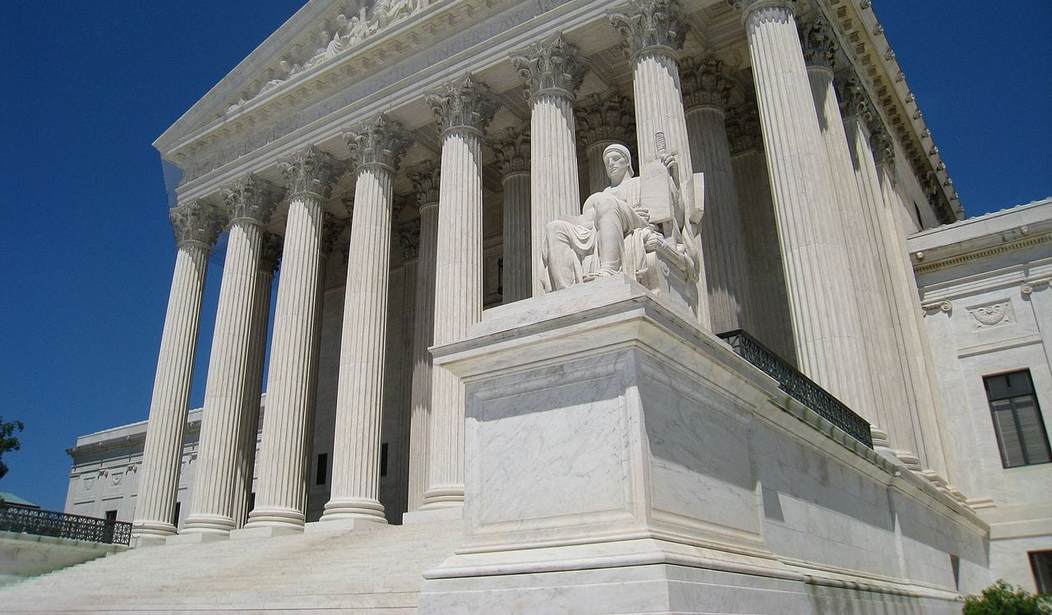On Monday, the U.S. Supreme Court unilaterally redefined “sex” in federal law to mean “sexual orientation” and “gender identity.” In Bostock v. Clayton County (2020), a 6-3 majority ruled that discrimination on the basis of sexual orientation or gender identity violates Title VII’s prohibition on sex discrimination. While a technical error has made the ruling inaccessible, the ruling represents an utter rejection of the original meaning of the term “sex” in federal law, twisting it to mean something Congress cannot have intended in 1964.
Justice Neil Gorsuch, long considered an originalist, wrote the Court’s opinion, with which left-leaning Justices Stephen Breyer, Ruth Bader Ginsburg, Elena Kagan, and Sonia Sotomayor joined. Chief Justice John Roberts also joined Gorsuch’s opinion, while Justices Samuel Alito, Clarence Thomas, and Brett Kavanaugh dissented.
BREAKING: Major win for LGBT rights at #SCOTUS with 6-3 decision that federal law bars workplace discrimination against gays, lesbian and transgender. GORSUCH writes for Dem appointees. ROBERTS agrees. ALITO/THOMAS/KAVANAUGH dissent.
— Josh "ALL CAPS country name and !" Gerstein (@joshgerstein) June 15, 2020
This is a breaking story and will be updated.
Alito: Court’s ‘Preposterous’ Trans Ruling Threatens Religion, Speech, Privacy, and Safety
Update 11:00 a.m. Eastern:
Warning signs about Gorsuch’s opinion on LGBT issues emerged in January 2017. Gorsuch attended St. John’s Episcopal Church in Boulder, Colo. The church’s rector (the high church equivalent to senior pastor), Susan Woodward Springer, attended the Women’s March in 2017. Gorsuch served as an usher in that church.
The Episcopal Church has shifted hard-left in recent years, abandoning the central claims of the Bible on issues like Jesus’s bodily Resurrection but also embracing LGBT ideology. This involves rejecting the Bible’s clear condemnation of homosexual activity as sinful and its clear statement that God made humans male and female.
Update 11:20 a.m. Eastern:
The following quote may be attributed to Alliance Defending Freedom Vice President of Appellate Advocacy John Bursch regarding the U.S. Supreme Court’s ruling Monday in R.G. & G.R. Harris Funeral Homes v. Equal Employment Opportunity Commission:
“Americans must be able to rely on what the law says, and it is disappointing that a majority of the justices were unwilling to affirm that commonsense principle. Redefining ‘sex’ to mean ‘gender identity’ will create chaos and enormous unfairness for women and girls in athletics, women’s shelters, and many other contexts,” Alliance Defending Freedom Vice President of Advocacy John Bursch said in a statement.
“Civil rights laws that use the word ‘sex’ were put in place to protect equal opportunities for women. Allowing a court or government bureaucrats to redefine a term with such a clear and important meaning undermines those very opportunities—the ones the law was designed to protect.”
Carrie Severino also condemned the ruling. “Justice Scalia would be disappointed that his successor has bungled textualism so badly today, for the sake of appealing to college campuses and editorial boards. This was not judging, this was legislating—a brute force attack on our constitutional system,” she tweeted.
“Today six judges acting as advocates opted to rewrite the statute themselves, short-circuiting the legislative process and in the process denying the people a decision that should be theirs to make on a major issue,” Severino tweeted. “Have no doubts about what happened today: This was the hijacking of textualism. You can’t redefine the meaning of words themselves and still be doing textualism. This is an ominous sign for anyone concerned about the future of representative democracy.”
Have no doubts about what happened today: This was the hijacking of textualism.
You can't redefine the meaning of words themselves and still be doing textualism. This is an ominous sign for anyone concerned about the future of representative democracy. (end)
— Carrie Severino (@JCNSeverino) June 15, 2020
Tyler O’Neil is the author of Making Hate Pay: The Corruption of the Southern Poverty Law Center. Follow him on Twitter at @Tyler2ONeil.









Join the conversation as a VIP Member